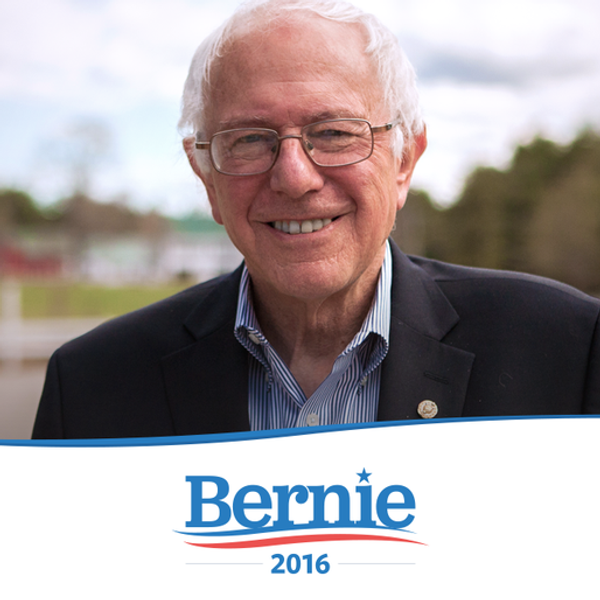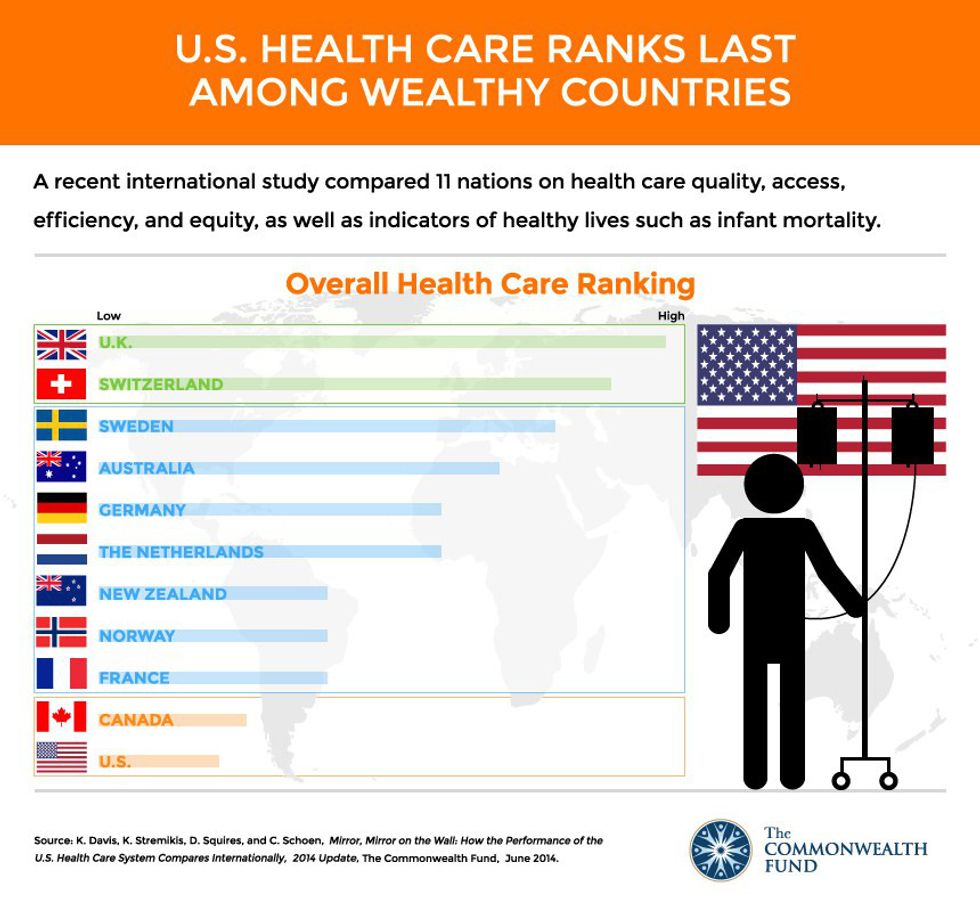The Donald is at it again. This time, he's proposed a radical plan to reform American healthcare. Get rid of the lines between the states! What lines? It doesn't matter, just "lines!" It's a reckless approach to a serious issue.
Or is it?
That's the story being circulated in sound bytes, both by the mass media and by competing candidate Marco Rubio. What they fail to mention is that despite the cacophony of voices insisting that he didn't propose a plan to tackle health care, he actually did, although it's not being closely covered by anyone.
Getting Rid of Walls
What was the plan? We can start by letting The Donald speak for himself. His explanation starts at the 1:04 mark below:
If you listen to his plan, it's actually pretty straightforward:
"What 'the lines around the states' mean...that brings in competition. When you get rid of the lines, it brings in competition. So instead of having one insurance company taking care of New York, or Texas, you'll have many. They'll compete. And it'll be a beautiful thing."
When pressed for more details:
"No, there's nothing to add! What's to add?"
This is why it's hilarious for people to suggest that he's replacing the Affordable Care Act with the Affordable Care Act. He's not proposing a nationalization of insurance companies, or for the current plan, or for an entirely private system. He's proposing maintaining a health safety net while driving down insurance prices by allowing insurance companies to compete between states, tearing down the legal walls between them...which is actually a relatively bipartisan solution to the problem.
What if Coffee Worked like Healthcare?

Disclaimer:
I'm not about to start examining whether this plan is actually viable, as I am not a healthcare professional, nor do I have any experience in the health insurance agency. What I would like to say, however, is a general policy I plan to follow until October 2016.
The New York Times recently endorsed Hillary Clinton and John Kasich, and this brought back something said to me by an associate years ago: why should anybody listen to a news agency that gives a stated bias?
That said, Jeb Bush's withdrawal from the Republican race gives me a unique opportunity as one of his former campaign leaders in Rhode Island. I can speak from an objective standpoint; I won't state open support for any candidate until shortly before the election, in order to preserve my own credibility and objectivity as a writer. This will also allow me to examine candidates like The Donald and Hillary Clinton without fear of criticism or repercussions for my writing, something that is becoming exceedingly hard to do in today's world. That said, his healthcare plan is something I can't speak for or against, but it shouldn't be dismissed as nonsense about lines between the states.






















